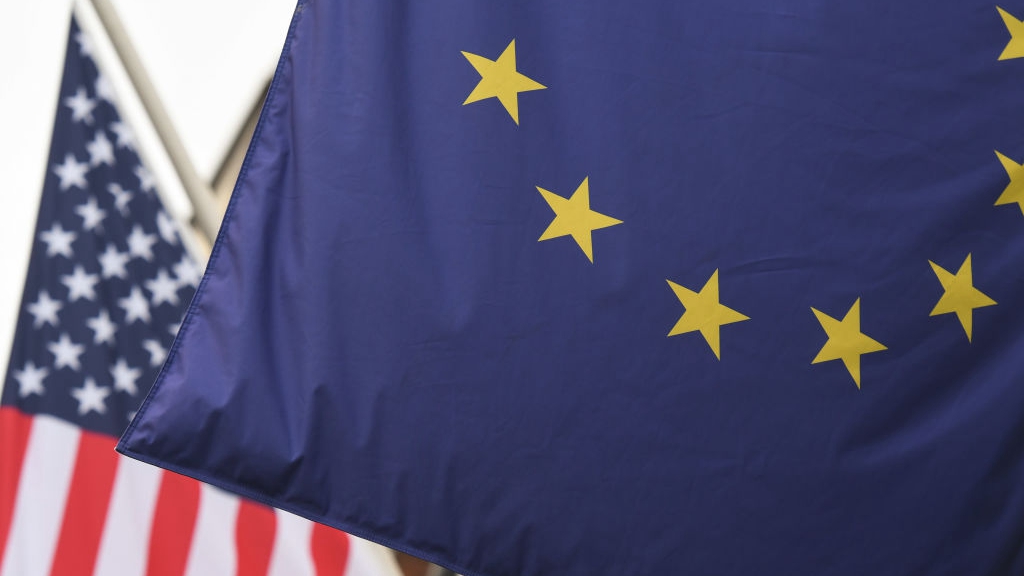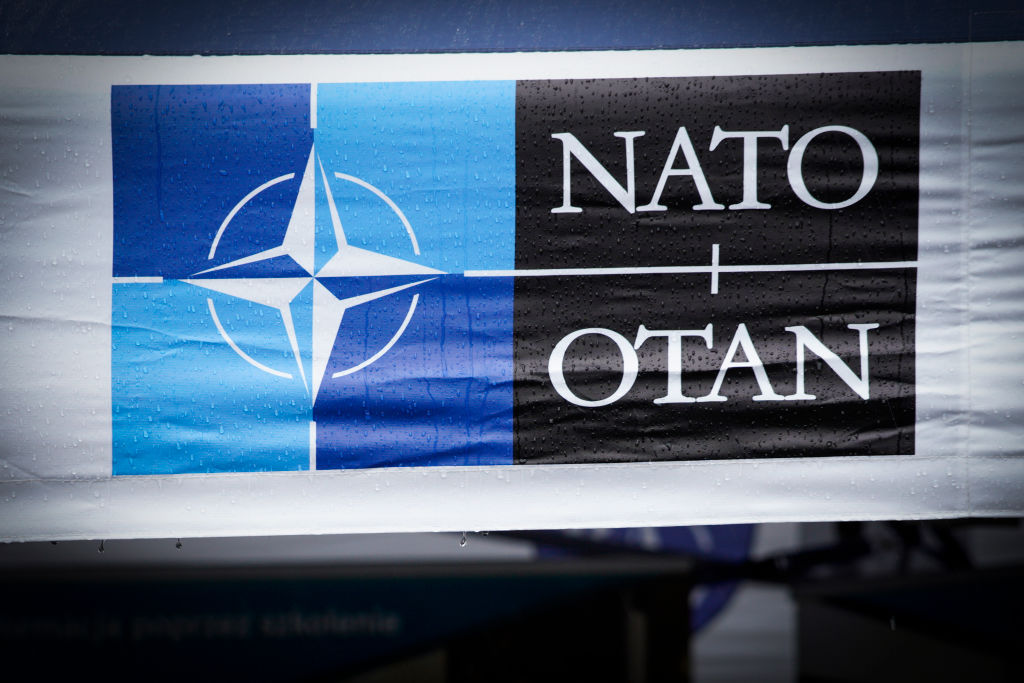
U.S. and EU flags in Dublin City Center, in Dublin, Ireland, January 17, 2019. /Getty
U.S. and EU flags in Dublin City Center, in Dublin, Ireland, January 17, 2019. /Getty
Editor's note: Keith Lamb is a University of Oxford graduate with an MSc degree in Contemporary Chinese Studies. His primary research interests are China's international relations and "socialism with Chinese characteristics." The article reflects the author's opinions and not necessarily the views of CGTN.
A recent poll by the European Council of Foreign Relations (ECFR) shows that Europeans' attitudes towards the U.S. have undergone a massive change with majorities in key member states being disenchanted with the north American country.
The takeaways from this survey of 15,000 Europeans from 11 countries show that Europeans now think the U.S. political system is broken. They believe that China will be more powerful than the U.S. within a decade and that should conflict break out between these two powers, Europe would remain neutral.
Trump made Europeans acutely aware of how vulnerable they were by placing all their defense and economic eggs into one American basket. His capriciousness demonstrated to Europeans how quickly Europe could be turned into an adversary. This was only too evident with U.S. meddling into Germany's internal affairs with the Nord Stream 2 saga.
However, European disenchantment with the U.S. is nothing new. Let us not forget that during the halcyon days of Obama's time in office, documents obtained by whistleblower Edward Snowden revealed that the U.S. National Security Agency (NSA) spied on officials in the EU, infiltrated its computer network, and bugged the EU's headquarters in Brussels.
One NSA document said, "we can attack the signals of most foreign third-class partners, and we do it too." In NSA vernacular, the U.S. is the first-class nation, the Five Eye nations are second-class partners and the Europeans are third-class partners.
Under Bush junior, the Iraq war caused a rift amongst the NATO alliance with major European states like France and Germany being against the invasion. One of the backstories to the invasion of Iraq was that Iraq in 2000 had begun selling its oil in euros rather than dollars.
As such, there has, for some time, been discontent within the leading heights of European states in regards to U.S. actions abroad. For the common citizens of Europe, the consequences of U.S.-led NATO actions on their doorstep, which some of their own elites have acquiesced to, has led to further hardships being inflicted upon themselves.

The destruction of Libya, Syria, and Iraq has led to an immense influx of refugees into Europe. European citizens are left with the conundrum of how to deal with these desperate victims who leave their ruined homelands.
On one hand, Europeans fear the dilution of their own European culture and worry that an influx of people will lead to increased competition for jobs while heaping pressure on welfare states that have been won through the history of a working-class struggle.
On the other hand, European citizens want to do their best for those who have nothing and many realize that the very imperial policies of their elites, who follow the U.S., have led to the refugee crisis. No wonder then with the instability surrounding Europe two-thirds of respondents to the recent survey believe the EU needs to develop its own defense capacities independent from the U.S.
It's not just the refugee crisis that has been leading to fears of fading European traditions. American pop culture has for decades trampled over European culture. France enacts laws to preserve the French language and promote French films against the power of Hollywood.
Beyond the old media industry which produces films, Europe fares even worse. Facebook, Microsoft, Apple, Google, YouTube, Amazon – the list of large computing and internet companies could go on and there wouldn't be a single European company that arises in the list.
Considering these companies control entertainment, communications, the workplace, and consumption, this status quo can only be detrimental to Europeans. This is even more so considering we have recently seen how quickly those who control these monopolies will quickly ban views that go against their interests.
Europeans by their very nature are transnational. Living in small European states leads to frequent travel abroad and interaction with those holding different viewpoints. This also means Europeans are multilingual which in turn makes them more apt at understanding the world beyond their own national confines.
As such, acknowledging the EU is founded on balance and compromise the overwhelming presence of the U.S. can at times appear gaudy to Europeans. With this sentiment, it is no wonder that the survey by the ECFR highlights that Washington cannot take European alignment against China for granted.
Of course, the U.S.-European relationship is not in tatters. There is still a lot of goodwill between the two poles and plenty of mutual interests to cooperate on. However, the new Biden administration needs to take into account that certain global trends that have come to the forefront under Trump have been brewing for some time now – this trend is the rise of multipolarity.
Consequently, the short-term policies of a presidential term will not be enough to charm the European people into a unipolar American orbit.
(If you want to contribute and have specific expertise, please contact us at opinions@cgtn.com.)

